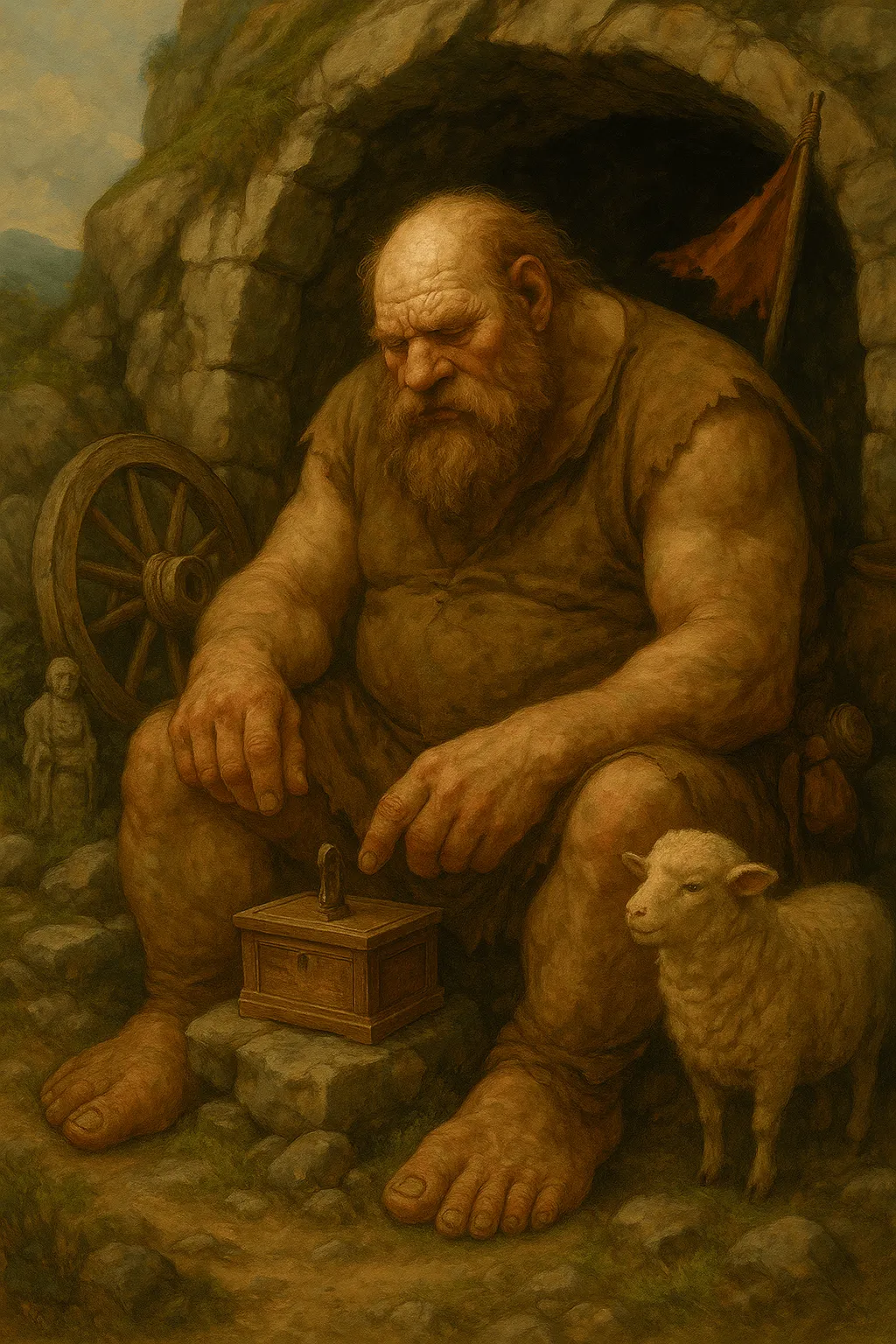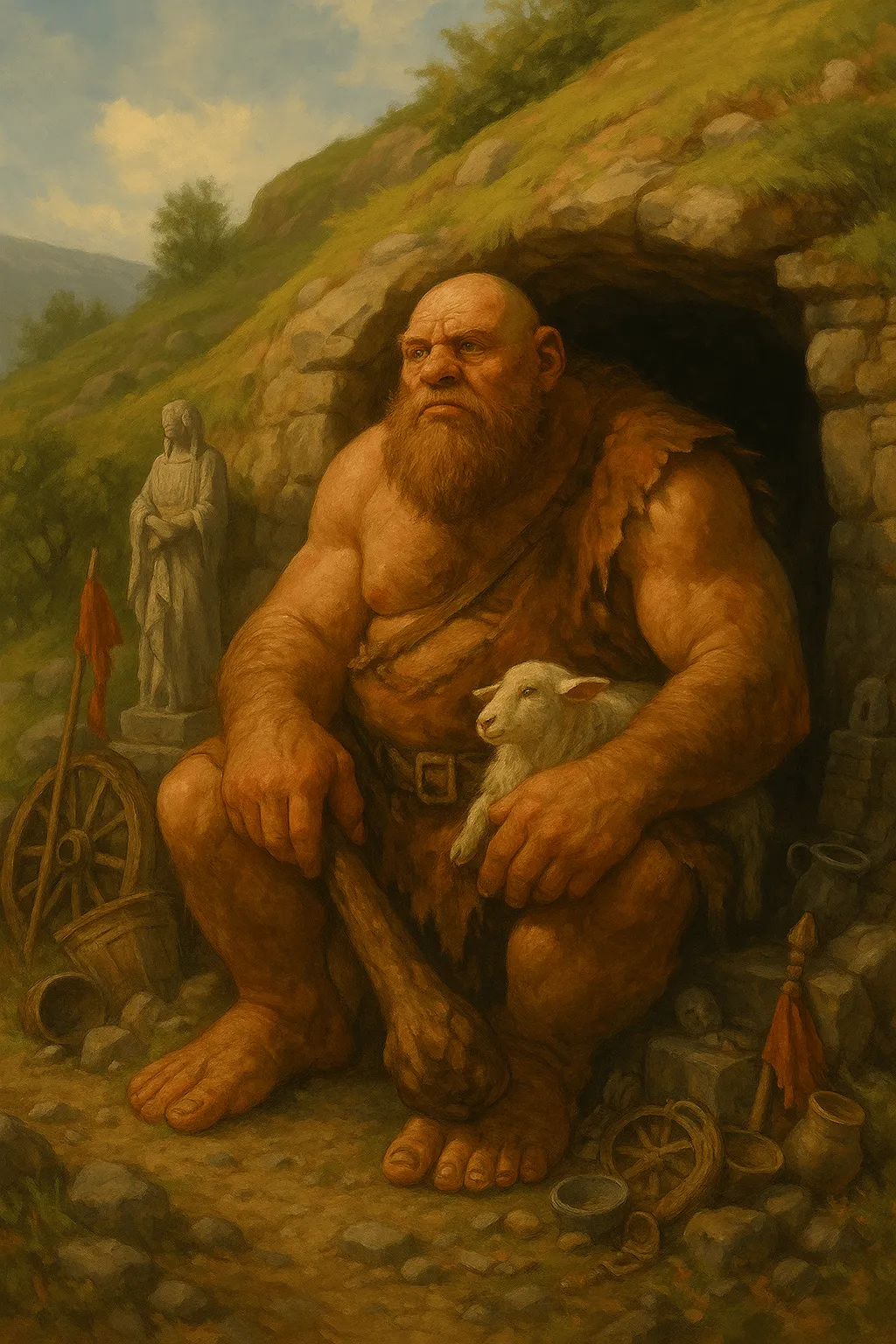
Hungry, curious, and unaware of the concept of property damage.
Hill Giants are the broad-shouldered, heavy-footed kin of the greater giant line—less refined than their storm-dwelling cousins, yet more present in the day-to-day worries of lowland folk. Towering over wagons and treetops, these giants are often dismissed as dull brutes driven by hunger and instinct, but such a view misses the quiet rhythm of their lives.
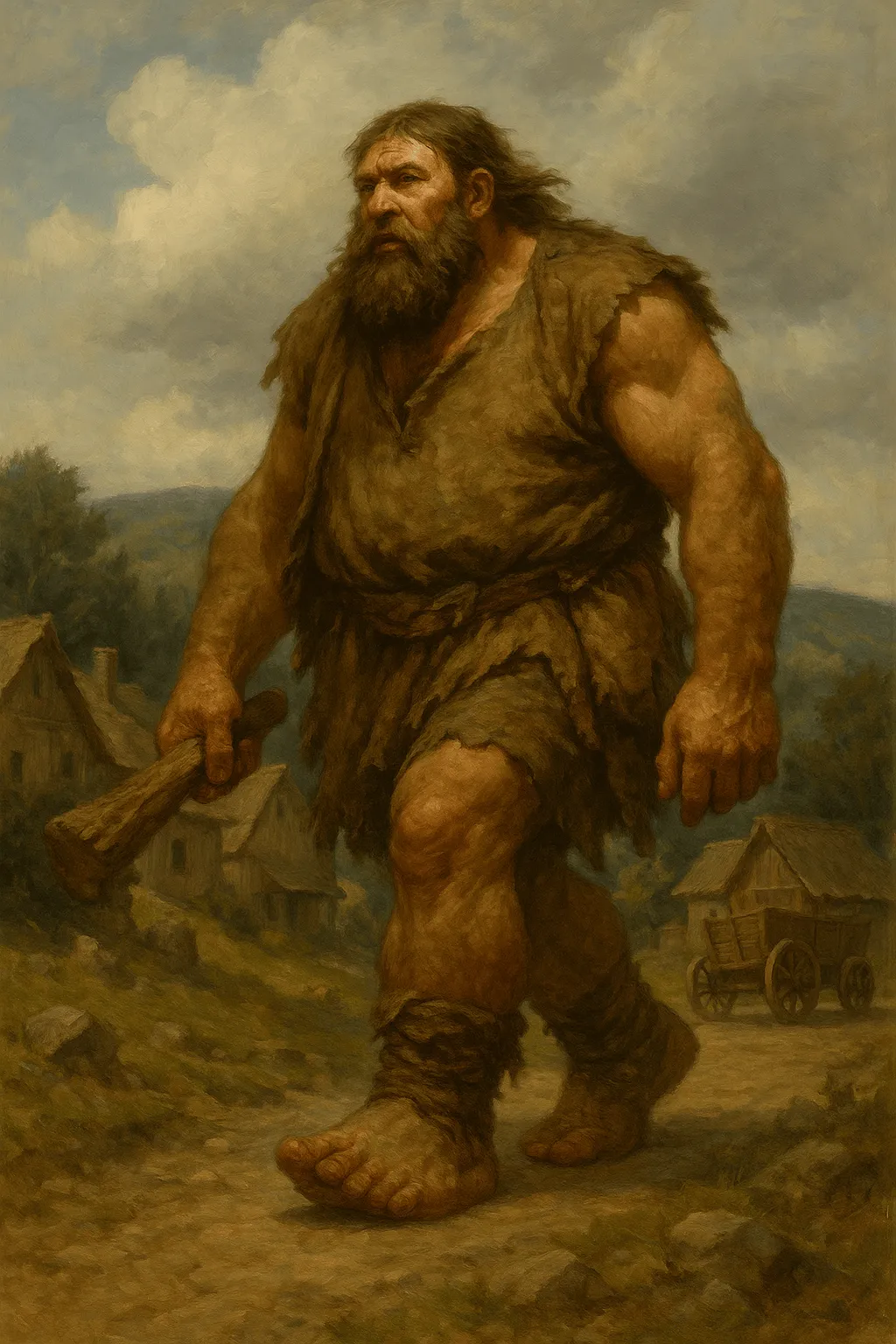 Hill Giants live close to the earth, nesting in caves, cliff hollows, or stone-walled shelters of their own making, often repurposing ruins with a surprising sense of layout and shelter from wind. Their culture, if it can be called that, is built around cycles of grazing, sleeping, and collecting. Food is their greatest pursuit—roots, sheep, grain, barrels of fish, and anything else not nailed down. But they also hoard objects they find comforting: broken cart wheels, flags, music boxes, statues, and sometimes sheep they’ve mistaken for pets.
Hill Giants live close to the earth, nesting in caves, cliff hollows, or stone-walled shelters of their own making, often repurposing ruins with a surprising sense of layout and shelter from wind. Their culture, if it can be called that, is built around cycles of grazing, sleeping, and collecting. Food is their greatest pursuit—roots, sheep, grain, barrels of fish, and anything else not nailed down. But they also hoard objects they find comforting: broken cart wheels, flags, music boxes, statues, and sometimes sheep they’ve mistaken for pets.
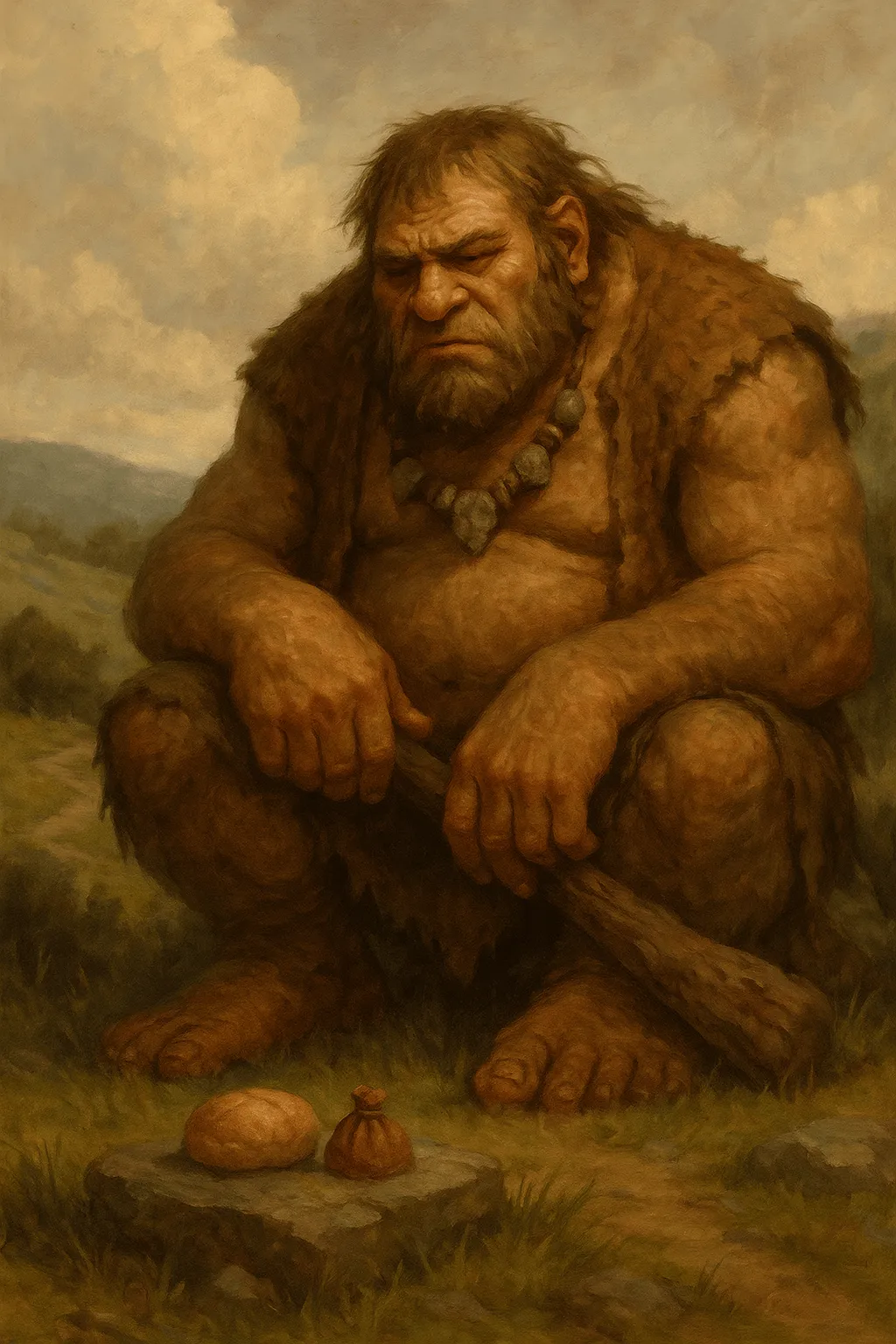 Despite their enormous strength and intimidating presence, Hill Giants rarely attack unless startled, challenged, or made to feel as though their “things” are at risk. Travelers who leave behind food or trinkets when passing through hill country often find the local giants leave them unbothered—or at least watched from a distance, with squinting eyes and slow, thoughtful grunts.
Despite their enormous strength and intimidating presence, Hill Giants rarely attack unless startled, challenged, or made to feel as though their “things” are at risk. Travelers who leave behind food or trinkets when passing through hill country often find the local giants leave them unbothered—or at least watched from a distance, with squinting eyes and slow, thoughtful grunts.
 Folklore surrounding Hill Giants paints them as clumsy troublemakers and dangerous nuisances, especially during seasonal migrations or lean winters. Entire villages have relocated to avoid a known Hill Giant's resting route, lest they wake to find their chimneys taken as walking sticks. But among mountain-folk and old shepherds, stories persist of Hill Giants who mourned lost dogs for years, or carried injured deer to healing pools, or who cried for days after accidentally knocking over a bell tower they admired from afar.
Folklore surrounding Hill Giants paints them as clumsy troublemakers and dangerous nuisances, especially during seasonal migrations or lean winters. Entire villages have relocated to avoid a known Hill Giant's resting route, lest they wake to find their chimneys taken as walking sticks. But among mountain-folk and old shepherds, stories persist of Hill Giants who mourned lost dogs for years, or carried injured deer to healing pools, or who cried for days after accidentally knocking over a bell tower they admired from afar.
 While not literate, some Hill Giants remember songs or chants passed down in rumble-voiced repetition—fragments of an older language no longer spoken, save in snoring tones beside campfires. Scholars argue about whether these phrases are remnants of the Elder Tongue or simply mimicry, but few have gotten close enough to confirm without being shooed away by a giant's flat-palmed push.
While not literate, some Hill Giants remember songs or chants passed down in rumble-voiced repetition—fragments of an older language no longer spoken, save in snoring tones beside campfires. Scholars argue about whether these phrases are remnants of the Elder Tongue or simply mimicry, but few have gotten close enough to confirm without being shooed away by a giant's flat-palmed push.
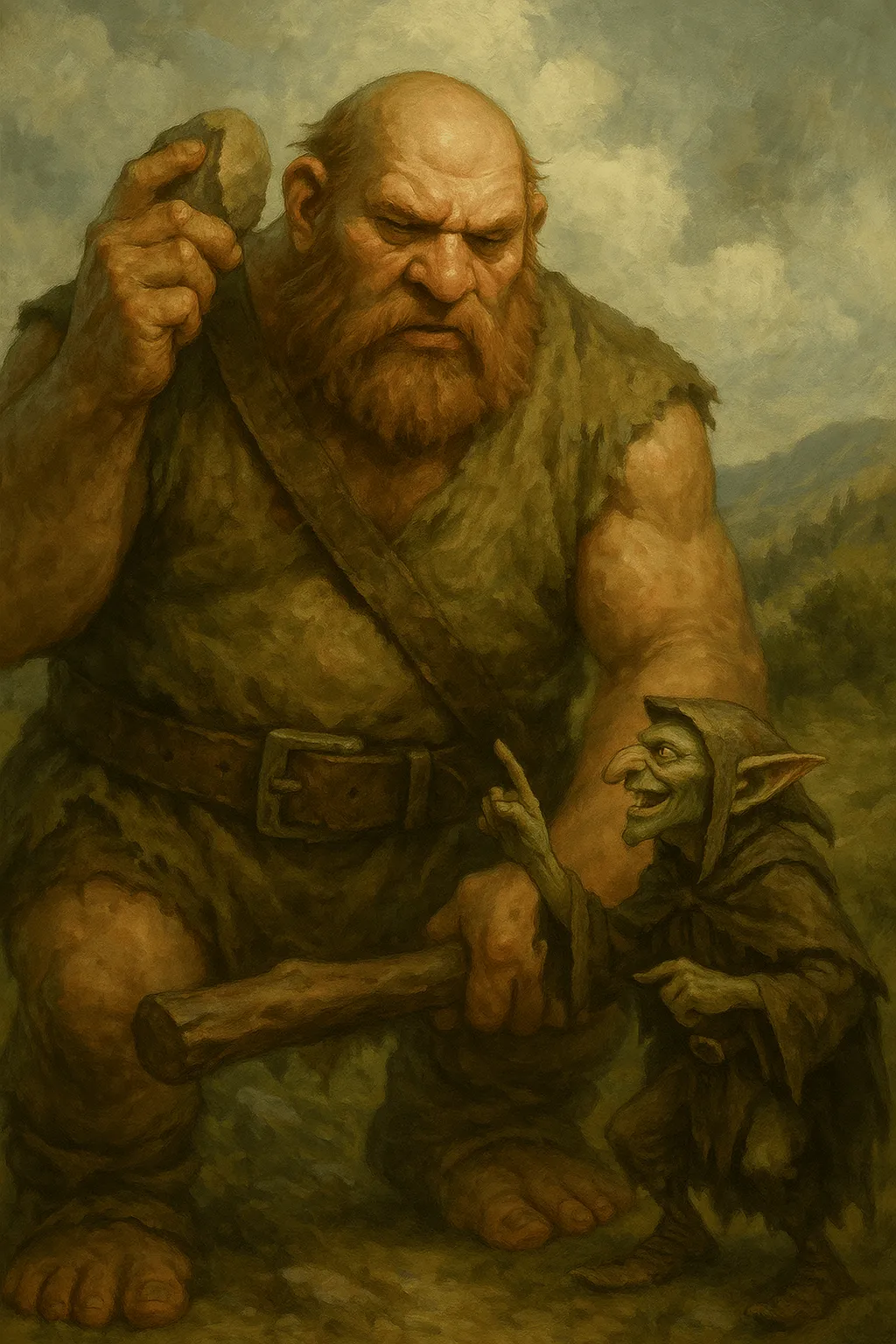 Their intelligence is situational. They can solve problems involving food, shelter, and warmth with remarkable ingenuity but fail spectacularly at abstract concepts or subtle cues. This has led to their frequent manipulation by smaller, cleverer beings—goblins, bandits, witches—who bribe, trick, or flatter them into serving as guards, enforcers, or walking siege engines.
Their intelligence is situational. They can solve problems involving food, shelter, and warmth with remarkable ingenuity but fail spectacularly at abstract concepts or subtle cues. This has led to their frequent manipulation by smaller, cleverer beings—goblins, bandits, witches—who bribe, trick, or flatter them into serving as guards, enforcers, or walking siege engines.
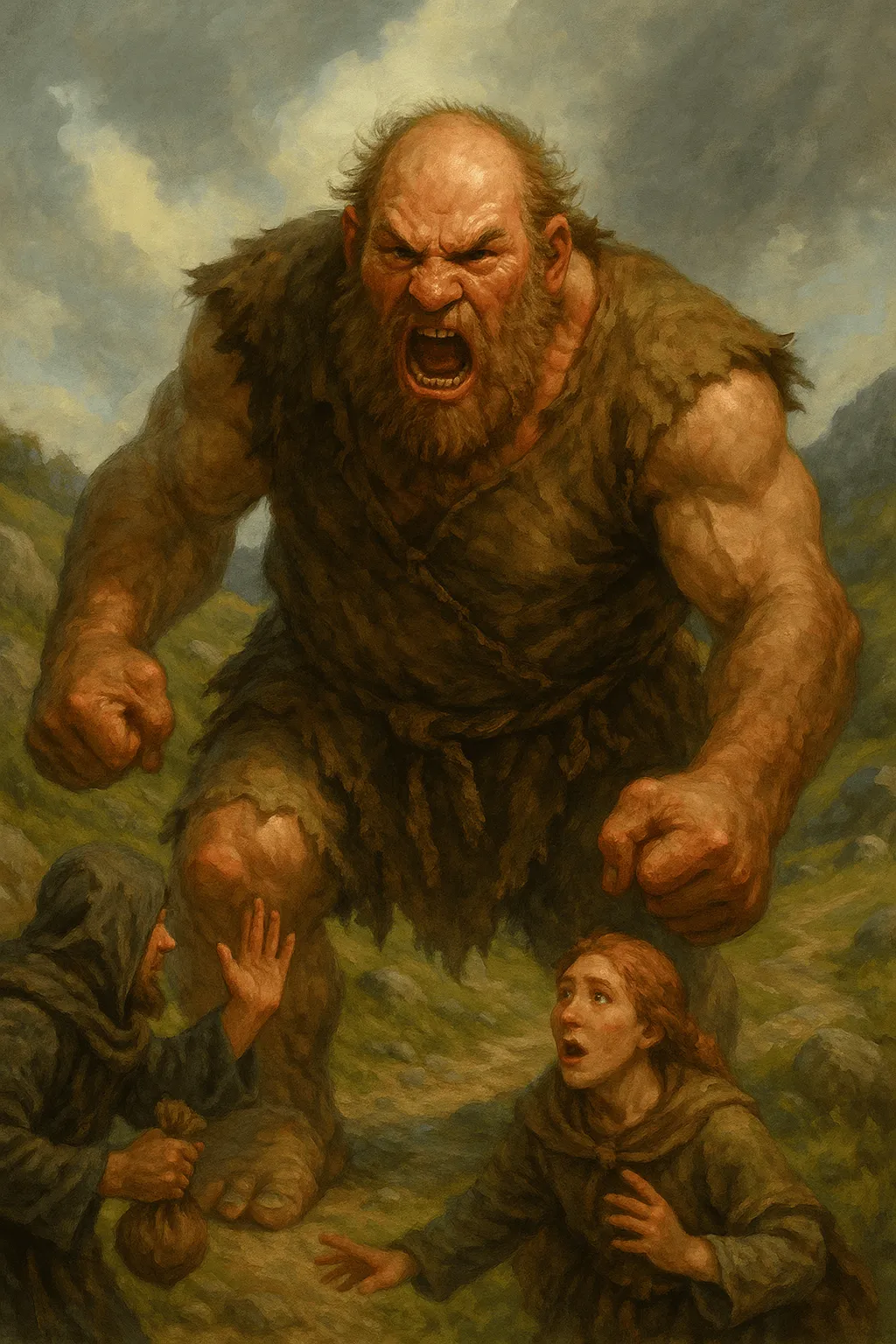 Still, betray one and you’ll have a furious, near-unstoppable force with a long memory and a love for stomping. As such, wise folk know that if you must deal with a Hill Giant, speak plainly, offer gifts, and never laugh unless the giant laughs first.
Still, betray one and you’ll have a furious, near-unstoppable force with a long memory and a love for stomping. As such, wise folk know that if you must deal with a Hill Giant, speak plainly, offer gifts, and never laugh unless the giant laughs first.
Hill Giants represent a natural force—unrefined, ungoverned, but not without feeling. They endure through size and stubbornness, shaped by gravity, hunger, and the simple joys of sun-warmed stone and full bellies. 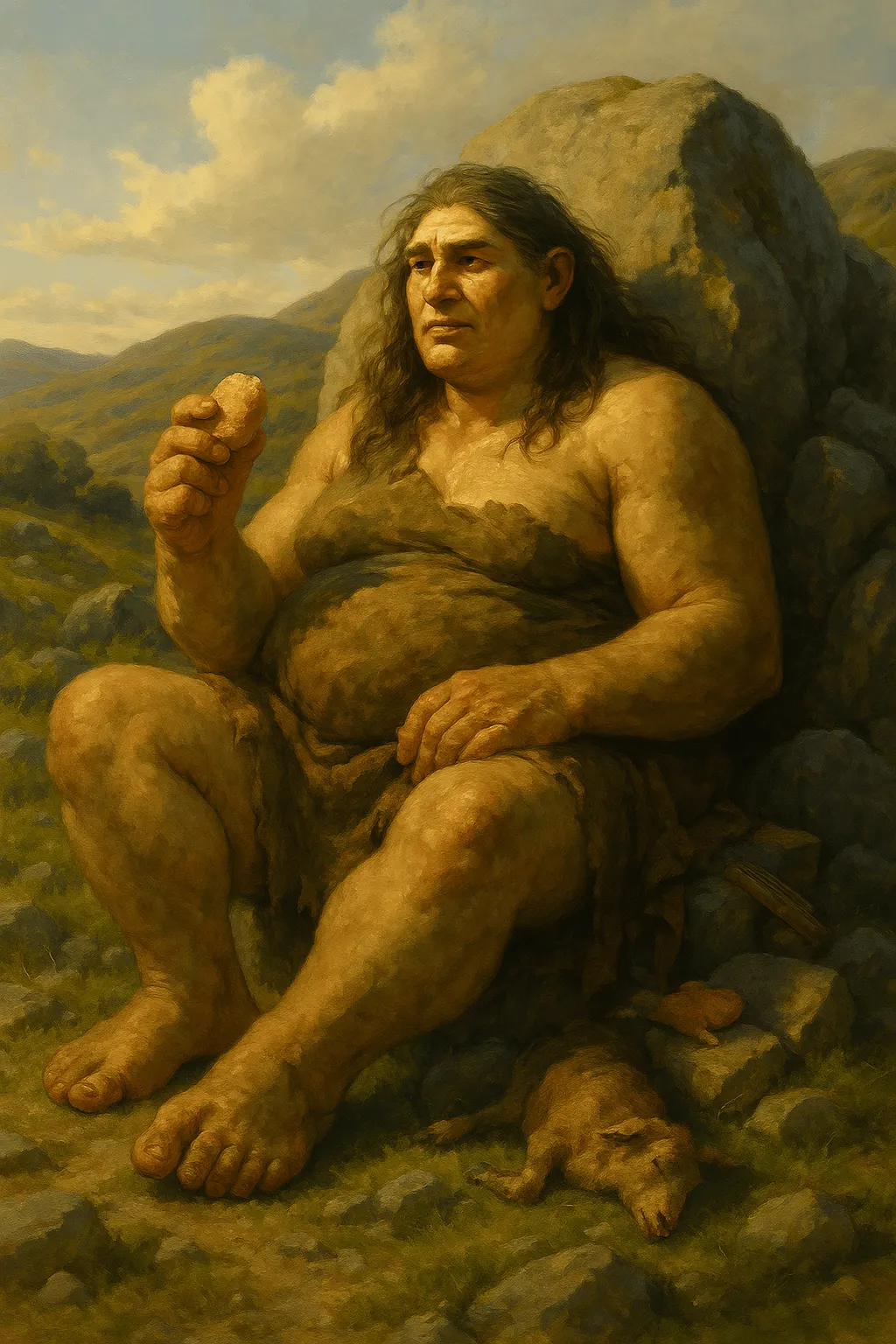 They are not fallen nobles like Storm Giants, nor cruel tyrants like Fire Giants. They are something older, more grounded, and strangely honest: great creatures of earth who want only to be left alone with their piles, their snacks, and their uneven, rumbly dreams.
They are not fallen nobles like Storm Giants, nor cruel tyrants like Fire Giants. They are something older, more grounded, and strangely honest: great creatures of earth who want only to be left alone with their piles, their snacks, and their uneven, rumbly dreams.
The following magical heirlooms are fictional and lore-based in nature. Each one is an affiliate link to a real-world item on Amazon that we've hand-selected to complement this artifact's lore.


If you click a link and buy an item, we may earn a commission.It costs you nothing extra, but can help keep this little corner of the internet glowing.
What does this mean?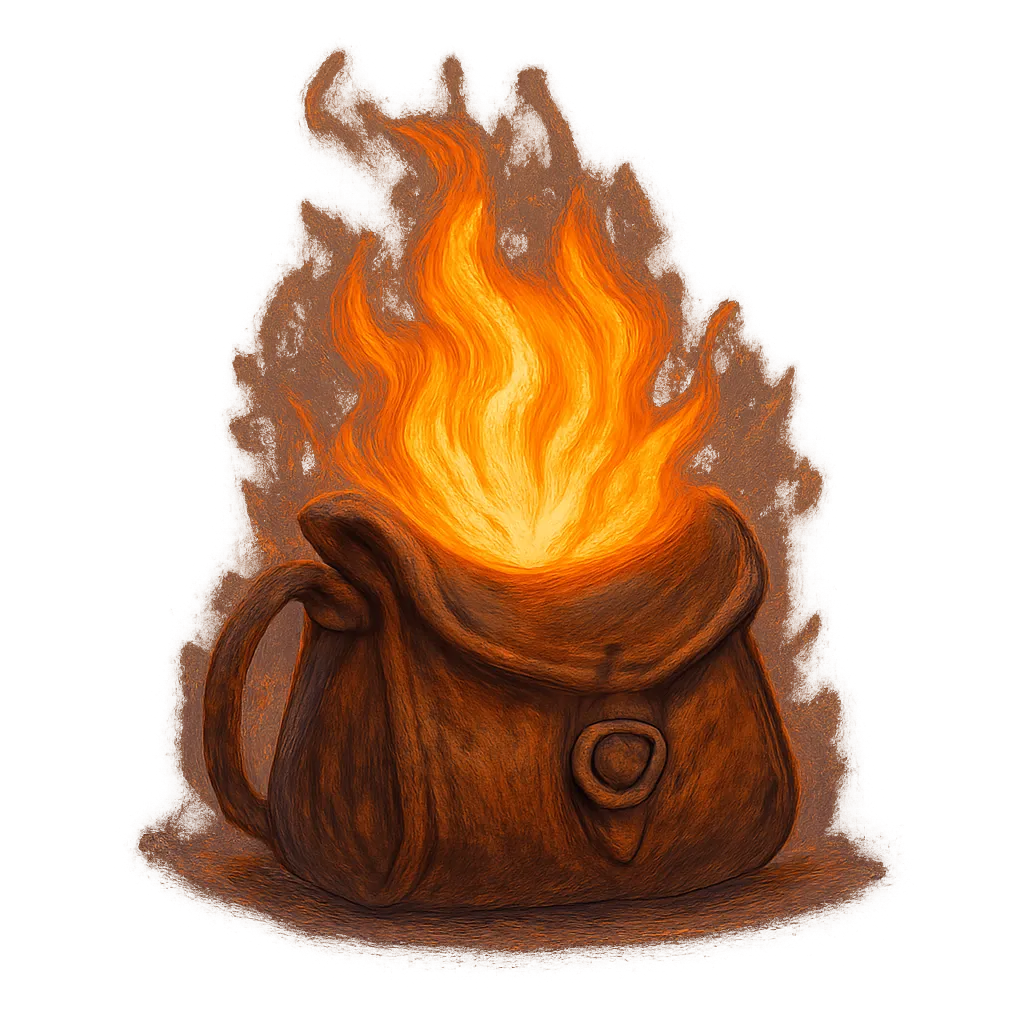
Fire without the fuss! Perfect for bardic storytelling.
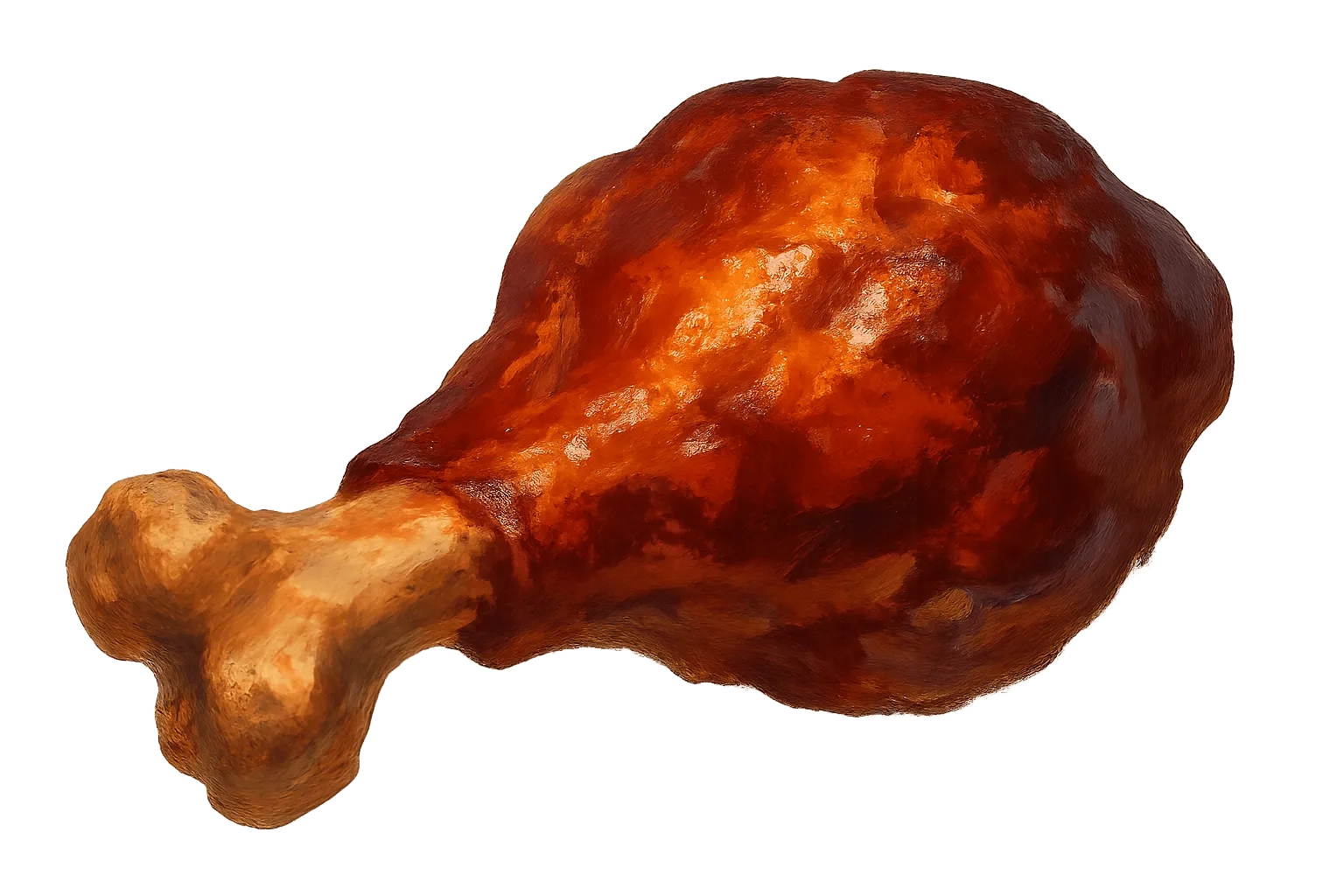
Restores a medium amount of HP. Grants +2 to chewing.
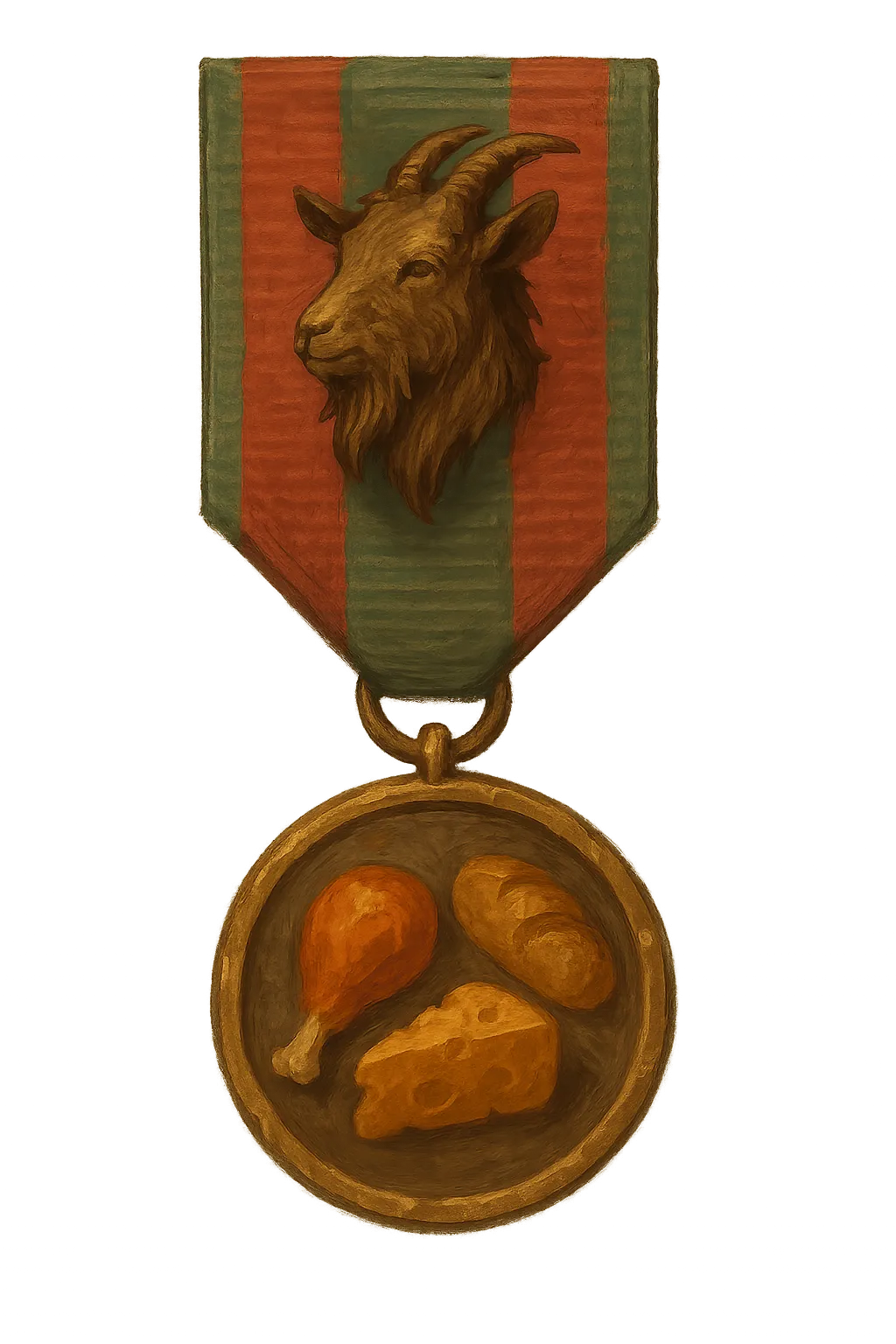
Awarded for gallantry in the face of unattended food.

Behold! A machine capable of granting the power to travel through time at the speed of time.







